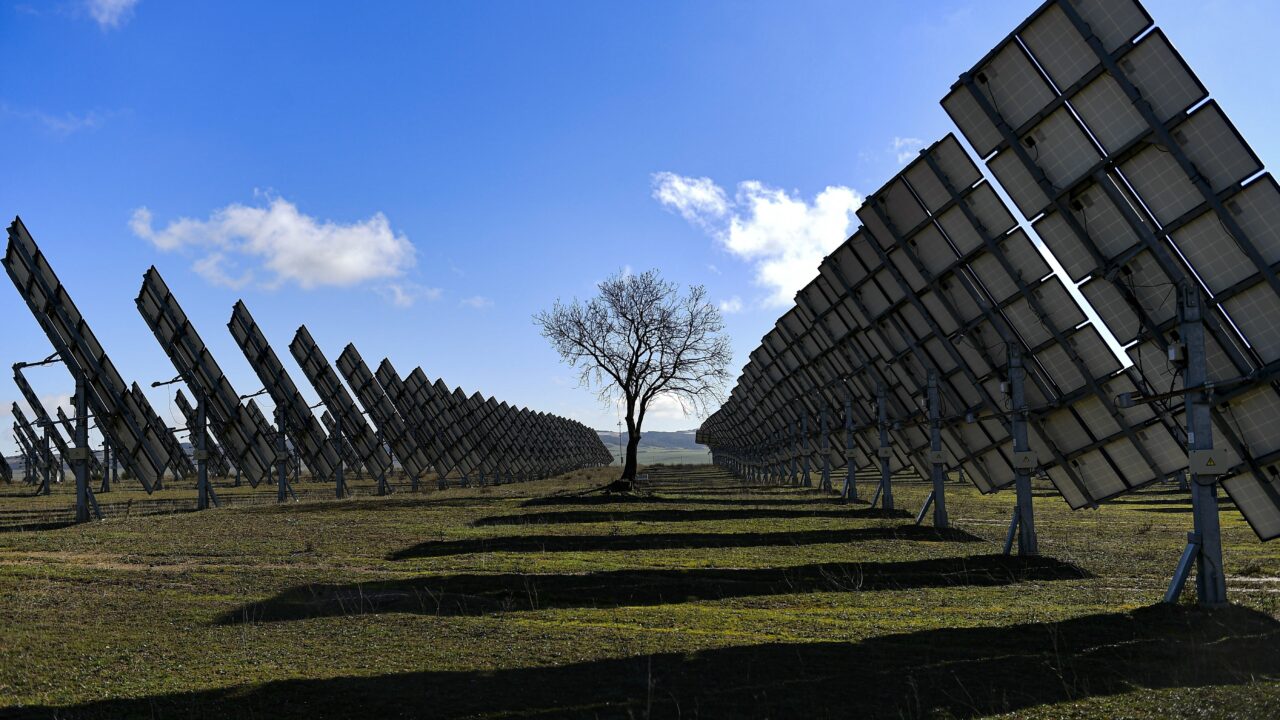Advocates of “Green Growth” promise a painless transition to a post-carbon future. But what if the limits of renewable energy require sacrificing consumption as a way of life? A tree is surrounded by solar panels in Los Arcos, Spain, on Feb. 24, 2023. (AP Photo/Alvaro Barrientos, File)
A tree is surrounded by solar panels in Los Arcos, Spain, on Feb. 24, 2023. (AP Photo/Alvaro Barrientos, File)
In the annals of industrial civilization, the Green New Deal counts as one of the more ambitious projects. Its scale is vast, promising to reform every aspect of how we power our machines, light our homes and fuel our cars. At this late hour of ecological and climate crisis, the Green New Deal is also an act of desperation. Our energy-ravenous culture cannot continue producing carbon without destroying the systems that are the basis of any advanced civilization, not to mention life itself. Something must be done, and quickly, to moderate the pressure on the atmospheric sink while powering the economic machine.
The consensus on the need for scaling up renewable energy is rarely disturbed by a disquieting possibility: What if techno-industrial society as currently conceived — based on ever-increasing GDP, global trade and travel, and complex global production and distribution chains designed to satisfy the rich world’s unquenchable appetite for bigger, faster, more of everything — what if that simply cannot function without energy-dense fossil fuels? What if, despite the promises of Green New Deal boosters, it is impossible to make sustainable the current system that provides billions of people sustenance, shelter, goods?
This possibility is not mentioned thanks to the dominance of “green growth.” This is the idea that the organizing principle of our civilization — endless growth of economies and populations — can be decarbonized swiftly in a way that will involve no material disruption. Green Growth holds out the promise of transitioning from fossil fuels directly into something like an earth-friendly utopia without a hitch and without meaningful sacrifice…
…click on the above link to read the rest…